Deploying a Contract Using Remix-IDE
STEP 1 - Getting Started with Remix
// SPDX-License-Identifier: MIT
pragma solidity ^0.8.0;
contract Counter {
uint256 public number;
function setNumber(uint256 newNumber) public {
number = newNumber;
}
function increment() public {
number++;
}
}STEP 2 - Deploying the Contract
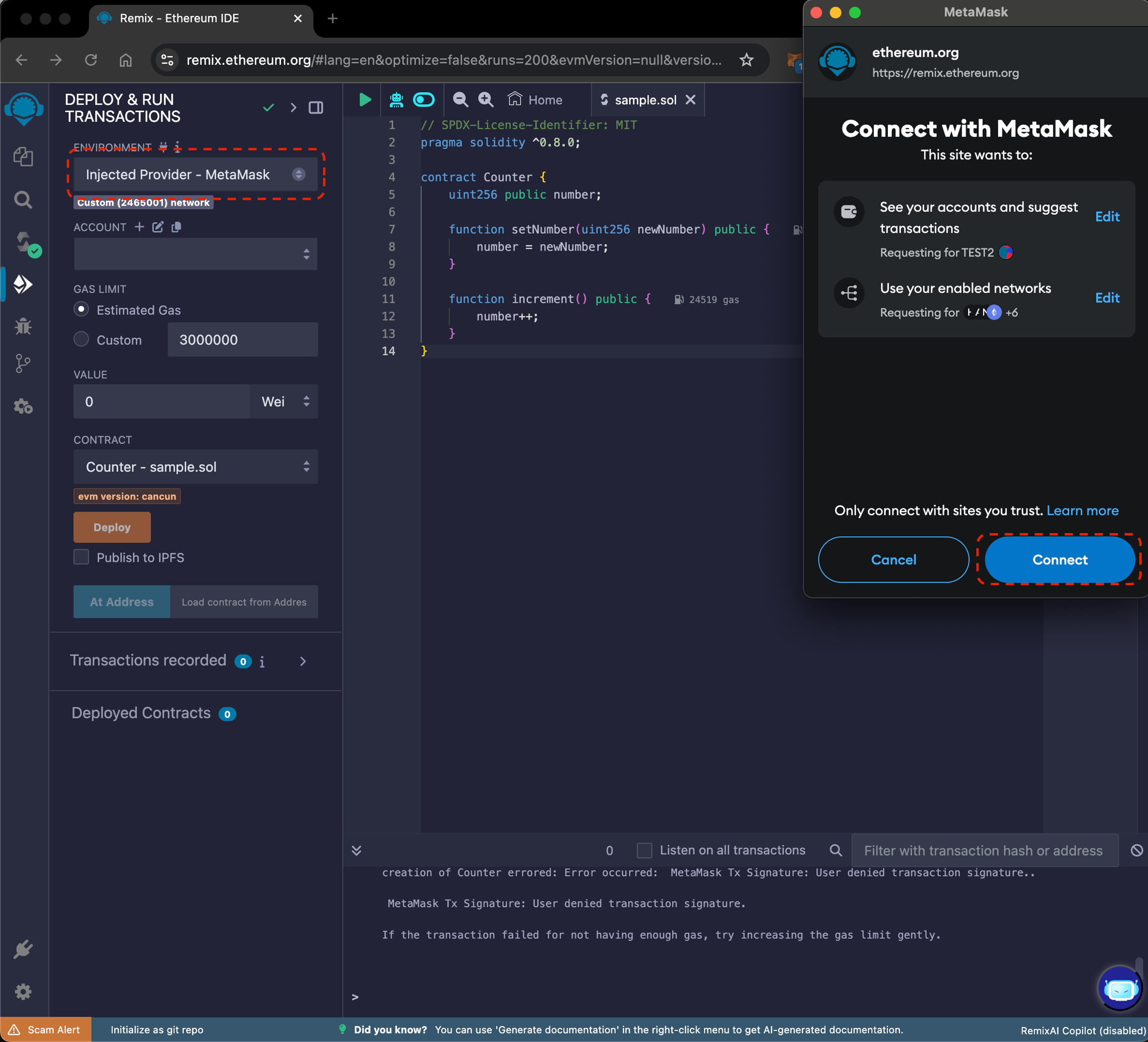
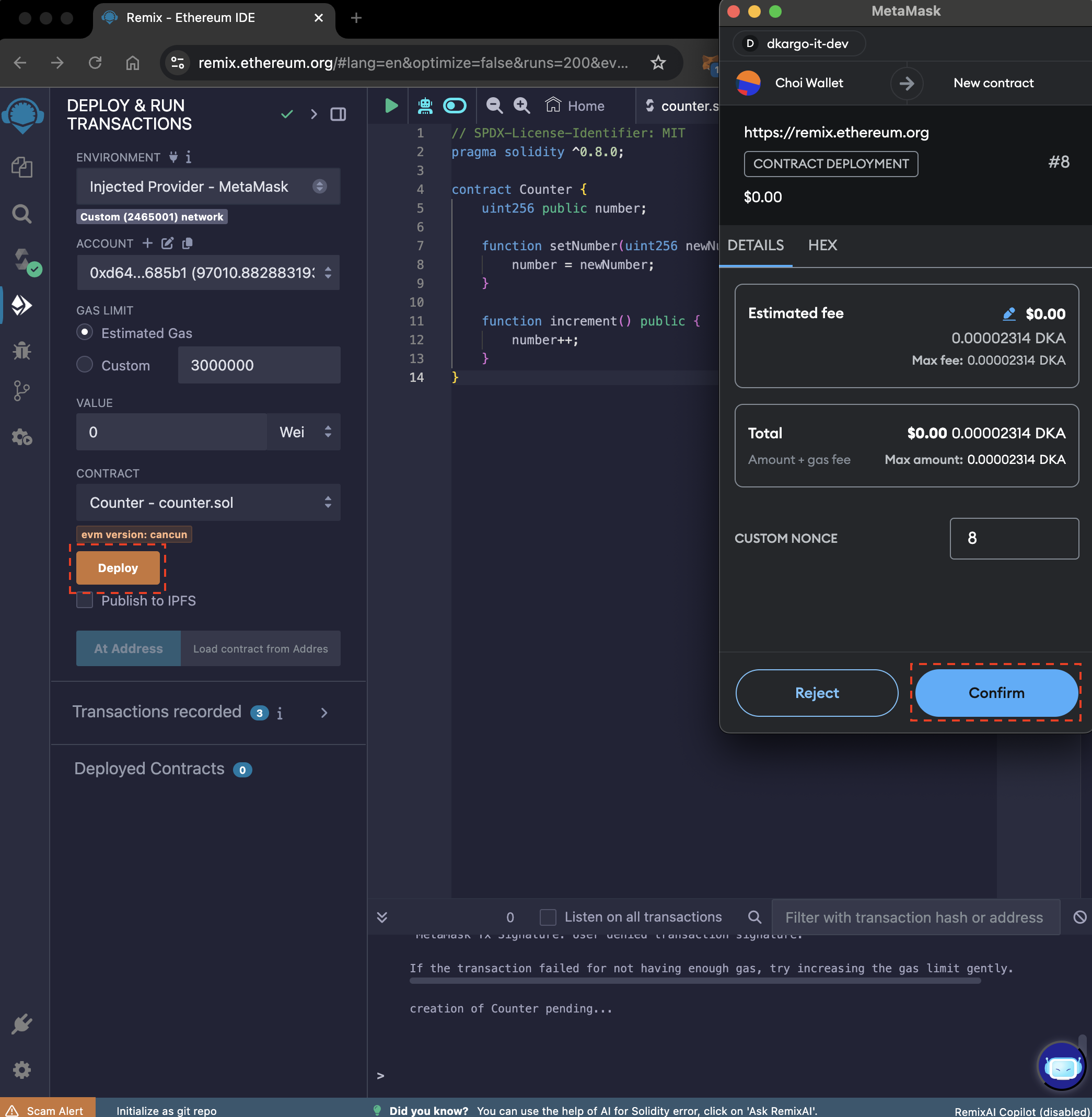
STEP 3 - Interacting with the Contract
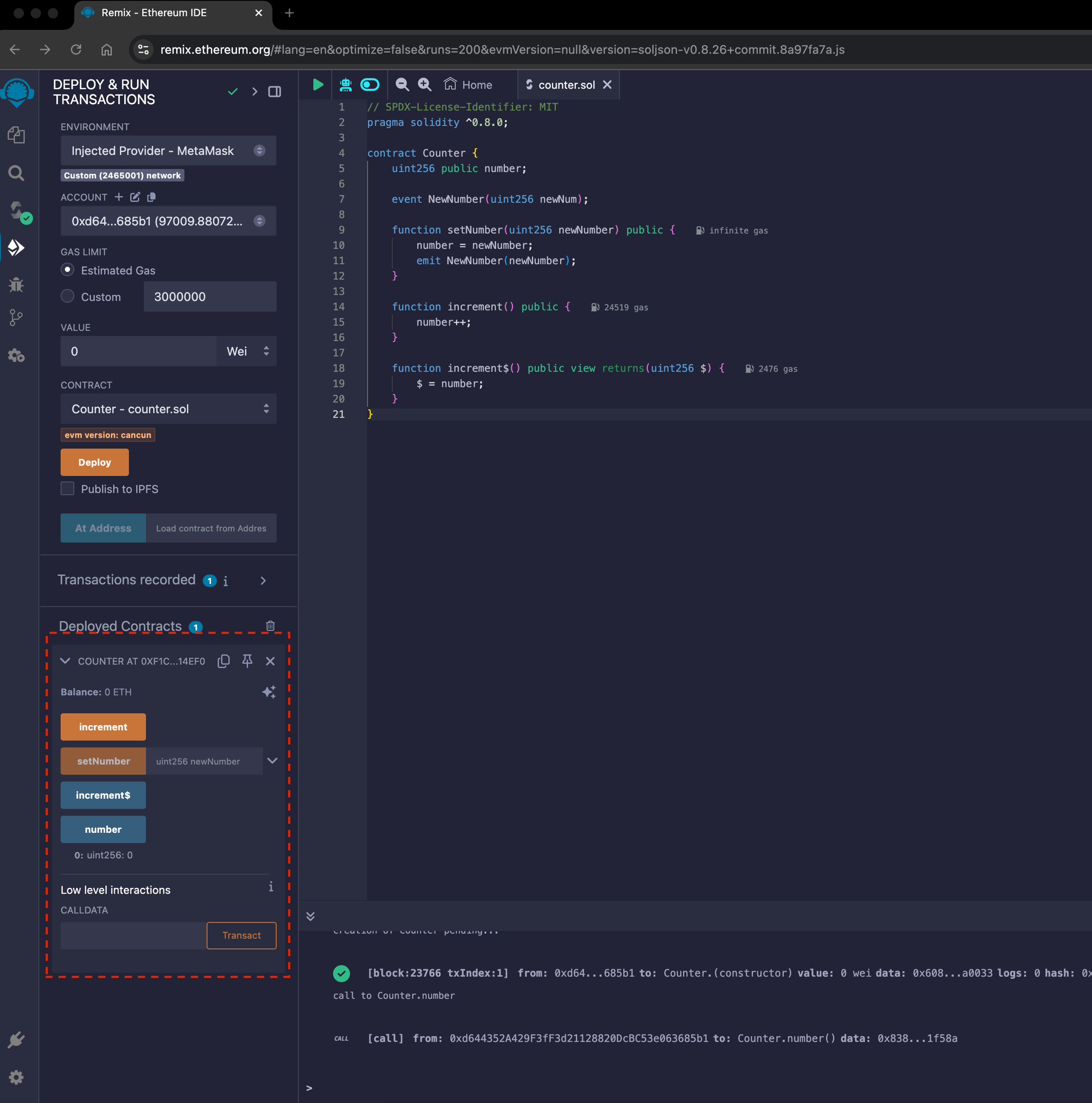
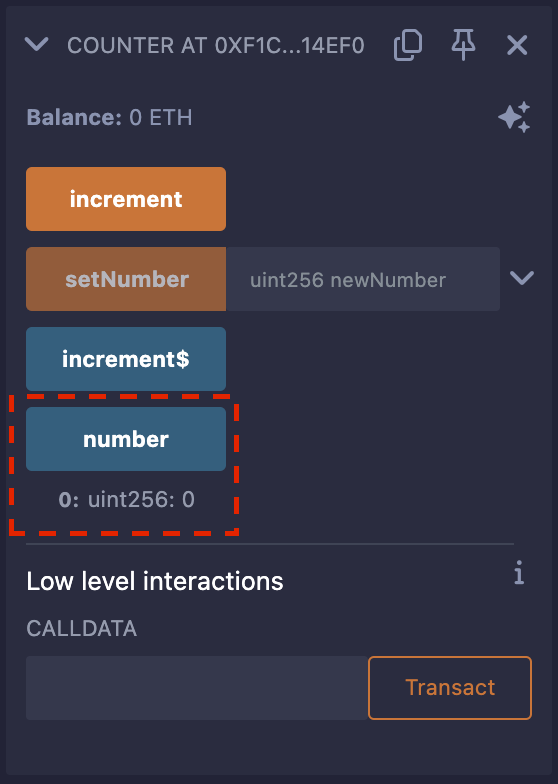
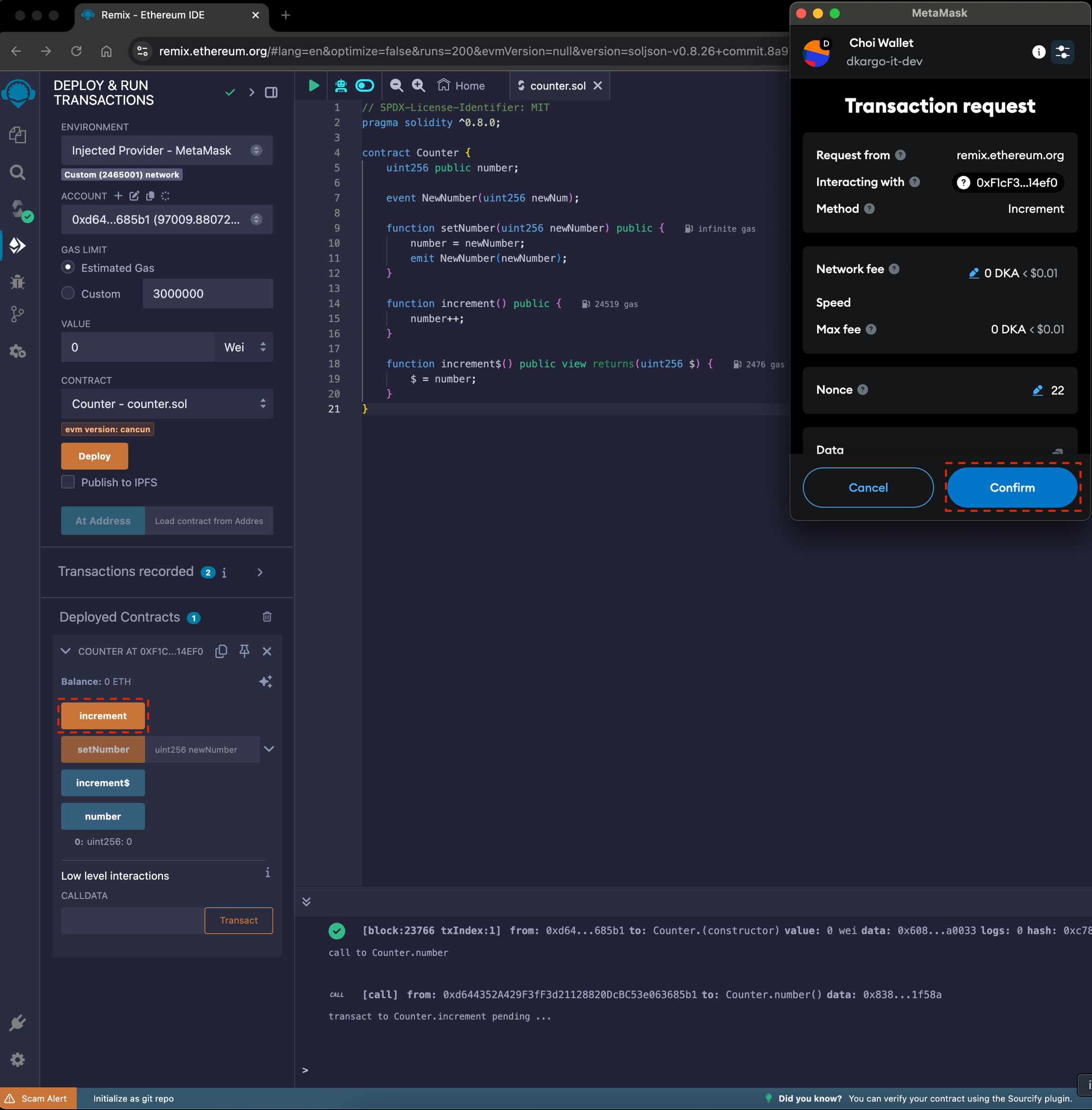
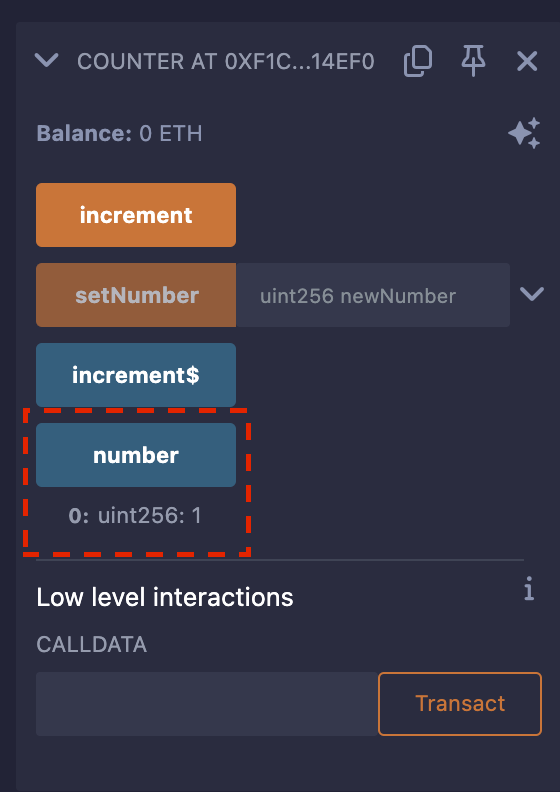
Last updated